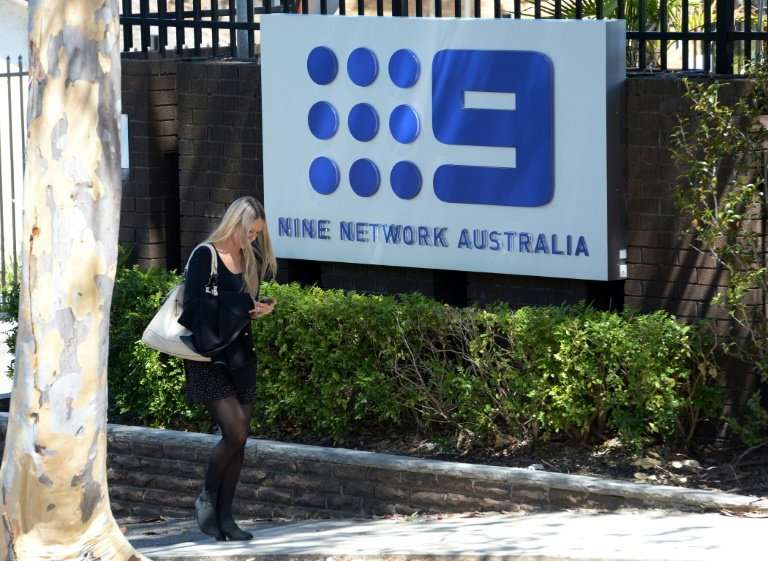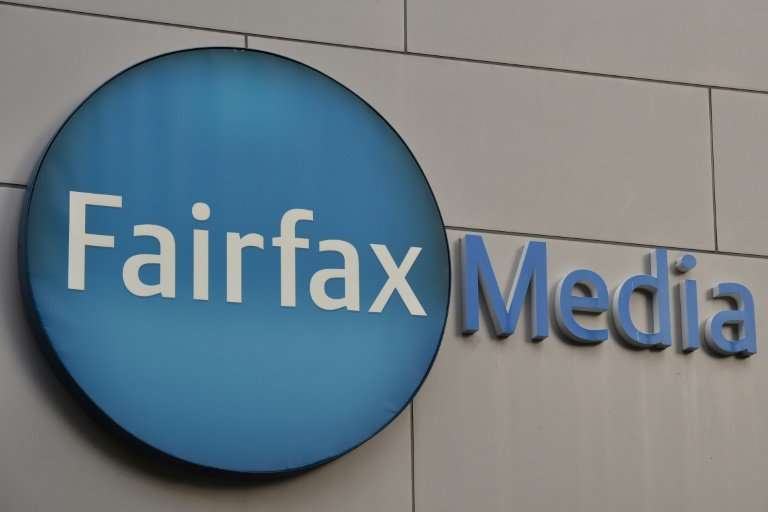Fairfax Media and Nine Entertainment have announced plans to merge - the new media giant will be called Nine, with Fairfax ceasing to exist, drawing the curtain on a venerable brand that has been an Australian staple for more than 170 years
Publisher Fairfax Media and Nine Entertainment on Thursday announced plans to merge, creating an integrated Australian media giant across television, online video streaming, print, and digital.
Under the deal, Nine will effectively be the dominant partner, with its shareholders owning 51.1 percent of the combined entity and Fairfax shareholders owning the rest.
The new company will include Nine's free-to-air television network, Fairfax's radio interests and mastheads—including The Sydney Morning Herald and The Age in Melbourne—and a suite of digital assets.
It will be called Nine, with Fairfax ceasing to exist, drawing the curtain on a venerable brand that has been an Australian staple for more than 170 years.
It is the first deal under a controversial new media ownership law passed in Australia last September which removed restrictions—in place to protect diversity—that prevented companies from owning newspapers, radio and television stations in the same city.
Major players in the market had long pressed for change, arguing the rules were outdated and did not account for digital media platforms and new publishers like Google and Facebook and video streaming giants such as Netflix.
Like its international peers, Fairfax has had its profits squeezed as advertising and circulation slump in the digital age, and it has been slashing staff and costs in recent years.
Its board unanimously recommended the proposal, which is expected to deliver significant savings for both companies.
"The Fairfax board has carefully considered the proposed transaction and believes it represents compelling value for Fairfax shareholders," Fairfax chairman Nick Falloon said.
A merger "unlocks the potential for significant value creation by combining the content, brands, audience reach and data across the respective businesses", both companies said in a statement.
"Both Nine and Fairfax have played an important role in shaping the Australian media landscape over many years," said Nine chairman Peter Costello.
Like its international peers, Australia's Fairfax Media has had its profits squeezed as advertising and circulation slump in the digital age
"The combination of our businesses and our people best positions us to deliver new opportunities and innovations for our shareholders, staff and all Australians in the years ahead."
'I want to cry'
Michael McCarthy, chief strategist at CMC Markets, said it was more like a takeover than a merger.
"Although the parties are terming it a 'merger', the terms could be interpreted as a takeover given the premium Nine will pay for control of Fairfax," he said.
Under the proposal, Fairfax shareholders will receive 0.3627 Nine shares and 2.5 cents for each share they hold, representing a 21.9 percent premium to Fairfax's closing share price of 77 cents on Wednesday.
The deal is expected to be completed before the end of the year, subject to approvals, with current Nine chief Hugh Marks heading up the company with three Fairfax directors joining the board.
News of the deal came as a shock to Australian journalists, many of whom took to Twitter to express their concern.
"Didn't see this coming. Huge changes for the Australian media landscape," said senior Fairfax reporter Kate McClymont, while Australian Broadcasting Corporation presenter Virginia Trioli tweeted: "They gave away the name "Fairfax"? I want to cry."
Another recent media deal in Australia saw US broadcasting giant CBS become the new owner of the country's third-largest commercial television network, Ten, late last year.
That deal included Channel Ten, digital channel One, digital platform Tenplay, and digital channel Eleven—of which CBS already owned a 33 percent stake.
CBS has said it also plans to launch its digital on-demand service CBS All Access in the Australian market.
© 2018 AFP























